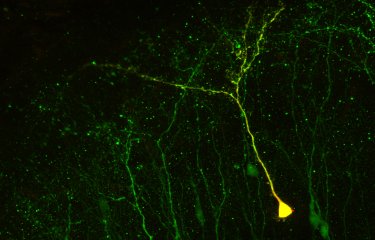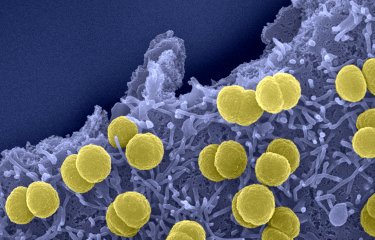Comfortably nested in the salivary glands of mosquitoes, the dengue virus moves around and infects everybody unlucky enough to be bitten. But on the wings of mosquitoes, it can’t possibly go very far and usually stays within a restricted community… unless it “changes vehicle” and travels further away thanks to the infected humans. Starting in January 2012, the Institut Pasteur will coordinate an ambitious international project called DENFREE that aims at better understanding, and managing, dengue epidemics that spread increasingly rapidly towards regions where the disease was traditionally not present, including Europe. This program involves 14 partner-institutions in 8 countries spread across 3 continents, each of them bringing its own high level expertise on dengue to make this project a collaborative success. It is funded by the European Union for €6 million.
Press release
Paris, march 3, 2012
From being traditionally restricted to tropical areas, the dengue virus is now becoming endemic in a growing number of regions, spreading as far as the South of France where several cases have been diagnosed in people who had not been abroad. The virus spreads thanks to mosquitoes that, in turn, take advantage of population movements and climate changes to invade new regions.
“DENFREE is a very ambitious project that aims at studying dengue from many different angles: from epidemiology to immunology, through climatology and geography,” explains Pr Anavaj Sakuntabhai, coordinator of the project at the Institut Pasteur in Paris. “Bringing together such diverse expertise is very interesting and will be crucial in finding more integrated solutions to a number of fundamental questions and ultimately to control the disease more efficiently.”
The symptoms of dengue can vary from benign stiffness to a lethal haemorrhagic fever. However, for approximately 90% of the people infected the disease goes absolutely unnoticed: it is “asymptomatic”. This specificity will be one of the main research axes of the DENFREE project because it is crucial to understand whether people who are infected but do not show symptoms can also spread the virus, and how they fight it. But the absence of any visible sign of the disease makes their identification very challenging. Researchers want to find them by creating a diagnostic kit which can rapidly identify these asymptomatic carriers, and by running these detailed tests on family members and neighbours of patients with acute dengue symptoms.
This multidisciplinary research project should allow scientists to build predictive models to anticipate future epidemics, to determine precisely what methods are more efficient in controlling mosquitoes, and to create a diagnostic kit that would be more sensitive and less invasive than the one currently in use. And, in a far future, why not to imagine a preventive vaccine?
DENFREE follows DENFRAME, another project coordinated by the Institut Pasteur. The DENFRAME project proved that studying dengue epidemics from a community angle is both efficient and pertinent. In an article published in PLoS Neglected Tropical Diseases on January 24, 2012, the team led by Philippe Dussart, Head of the Virology Department at the Institut Pasteur de Guyane, in association with other teams based in South America and South-East Asia, shows that a high proportion of the family members of patients with acute symptoms of dengue were also contaminated. However most of these people did not show any sign of the disease and are often ignored in the studies. This finding brings a solid foundation on which the scientists involved in DENFREE will be able to build their research.
Partners
Institut Pasteur, France
Imperial College London, United-Kingdom
Bernard Nocht Institute, Germany
Mahidol University, Thailand
Institut Pasteur du Cambodge, Cambodia
Fundacio Institut Catala De Ciencies Del Clima, Spain
UMR IDEES, Université de Rouen, France
UMR7625 Ecologie et Evolution, CNRS-UPMC-ENS, France
CMAF, Fundacao de Faculdade De Ciencias Da Universidade De Lisboa, Portugal
Instituto De Patologia E Imunologia Molecular Da Universidade Do Porto, Portugal
BC Platforms, Finland
AmpTec GmbH, Germany
Riotech Pharmaceticals Ltd, United-Kingdom
Institute Of Tropical Medicine “Pedro Kouri”, Cuba
Source
Clinical and Virological Study of Dengue Cases and the Members of Their Households: The Multinational DENFRAME Project - in PLos -Neglected Tropical Diseases, January 24, 2012
Philippe Dussart1*, Laurence Baril2,3, Laure Petit2, Lydie Beniguel2, Luong Chan Quang4, Sowath Ly5, Raimunda do Socorro Silva Azevedo6, Jean-Baptiste Meynard7, Sirenda Vong5, Loı¨c Chartier2, Aba Diop3, Ong Sivuth8, Veasna Duong8, Cao Minh Thang9, Michael Jacobs10, Anavaj Sakuntabhai11, Marcio Roberto Teixeira Nunes6, Vu Ti Que Huong9, Philippe Buchy8, Pedro Fernando da Costa Vasconcelos6
1 Institut Pasteur de la Guyane, Laboratoire de Virologie, Cayenne, French Guiana
2 Institut Pasteur, Unité d’Epidémiologie des Maladies Emergentes, Paris, France,
3 Institut Pasteur de Dakar, Unité d’Epidémiologie des Maladies Infectieuses, Dakar, Senegal
4 Institut Pasteur d’Ho Chi Minh Ville, Unité d’épidémiologie, Ho Chi Minh City, Vietnam
5 Institut Pasteur du Cambodge, Unité d’Epidémiologie et de Santé Publique, Phnom Penh, Cambodia
6 Instituto Evandro Chagas, Department of Arbovirology and Hemorrhagic Fevers, Bele´m, Brazil
7 Institut Pasteur de la Guyane, Unité d’épidémiologie, Cayenne, French Guiana
8 Institut Pasteur du Cambodge, Unité de Virologie, Phnom Penh, Cambodia
9 Institut Pasteur de Ho Chi Minh Ville, Laboratoire des Arbovirus, Ho Chi Minh City, Vietnam,
10 University College London Medical School, Department of Infection, London, United Kingdom
11 Institut Pasteur, Unité de Pathogénie Virale, Paris, France
Contacts
Nadine Peyrolo / +33 (0)1 45 68 81 47
Sabine D'Andrea / +33 (0)1 44 38 92 17
presse@pasteur.fr





